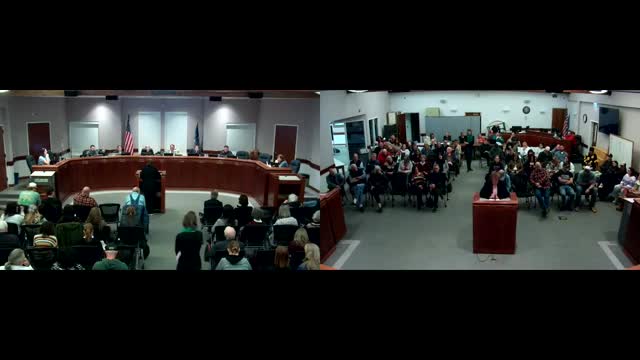City Council Faces Backlash Over Main Street Zoning Changes
November 08, 2024 | Centerville City Council, Centerville, Davis County, Utah
This article was created by AI summarizing key points discussed. AI makes mistakes, so for full details and context, please refer to the video of the full meeting. Please report any errors so we can fix them. Report an error »

During a recent government meeting, a council member emphasized the historical significance of Main Street in Centerville, highlighting its evolution from primarily residential to commercial use. The speaker noted that many homes were replaced by businesses over the years due to council decisions and zoning changes, with specific examples including the transformation of the B H Roberts home into a 7-Eleven and the conversion of a horse pasture into a car wash.
The council member argued that understanding this history is crucial for future planning, asserting that residential homes were the original structures on Main Street. They pointed out that about 20 to 25 years ago, there was a shift back towards recognizing the importance of residential areas, supported by extensive public input and financial investment in a general plan for the city.
This general plan, according to the speaker, was designed to reflect community values, emphasizing the need for development that respects the city's heritage and promotes a walkable environment. The plan specifically encourages single-family homes and aims to preserve existing land use, reinforcing the idea that the area should remain a residential and cultural hub.
The discussion also touched on the establishment of a historic district to further protect the vision for Main Street. The council member expressed concerns about potential zoning changes that could allow adult-oriented businesses, such as tattoo parlors, in residential areas. They argued that such establishments should not be placed next to homes, citing state regulations that restrict access to these types of businesses for individuals under 18.
In conclusion, the council member called for adherence to the existing zoning laws and the general plan, which they believe should guide future developments in the area to ensure the preservation of Centerville's residential character.
The council member argued that understanding this history is crucial for future planning, asserting that residential homes were the original structures on Main Street. They pointed out that about 20 to 25 years ago, there was a shift back towards recognizing the importance of residential areas, supported by extensive public input and financial investment in a general plan for the city.
This general plan, according to the speaker, was designed to reflect community values, emphasizing the need for development that respects the city's heritage and promotes a walkable environment. The plan specifically encourages single-family homes and aims to preserve existing land use, reinforcing the idea that the area should remain a residential and cultural hub.
The discussion also touched on the establishment of a historic district to further protect the vision for Main Street. The council member expressed concerns about potential zoning changes that could allow adult-oriented businesses, such as tattoo parlors, in residential areas. They argued that such establishments should not be placed next to homes, citing state regulations that restrict access to these types of businesses for individuals under 18.
In conclusion, the council member called for adherence to the existing zoning laws and the general plan, which they believe should guide future developments in the area to ensure the preservation of Centerville's residential character.
Don't Miss a Word: See the Full Meeting!
Go beyond summaries. Unlock every video, transcript, and key insight with a Founder Membership.
✓
Get instant access to full meeting videos
✓
Search and clip any phrase from complete transcripts
✓
Receive AI-powered summaries & custom alerts
✓
Enjoy lifetime, unrestricted access to government data
30-day money-back guarantee


